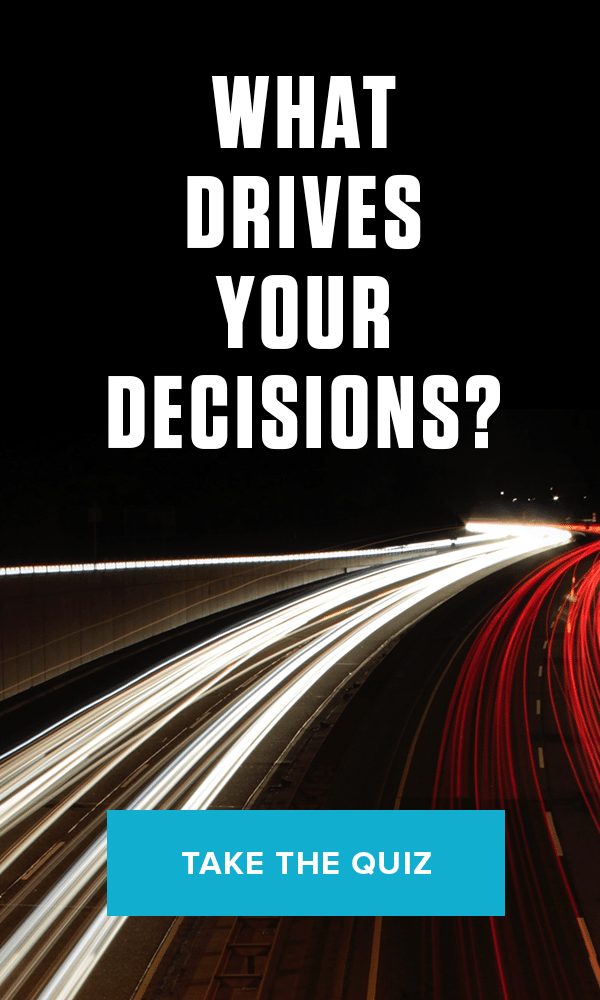Team Tony cultivates, curates and shares Tony Robbins’ stories and core principles, to help others achieve an extraordinary life.
Negative campaigns work. Here’s why
Metaprograms are the reason you vote the way you do
When the 2016 political campaigns kicked into full gear, we started seeing negative campaign tactics emerge, as reported by the Washington Post, the New York Times and the Wall Street Journal earlier this year. Many commentators remarked that the 2016 election year could be the “most negative, ugly, nasty presidential campaign in modern U.S. history.”
Although the 2016 presidential election has come and gone, the 2018 midterm elections are approaching, and we see more of the same messaging tactics. Those pushing their political agendas turn to negative messaging in order to entice voters. Instead of solely highlighting the positive qualities of potential politicians, campaign managers run advertisements listing the negative attributes and ideologies of their competitors.
Think of someone you voted for. You can probably list a few great things that candidate accomplished, but you can probably also recall why you didn’t vote for their competition. You felt that there were too many negative things they had done or that they held too many beliefs you disagreed with.
Why do politicians use negative campaign tactics? Why isn’t it enough to talk about the good work and beliefs candidates have or want to accomplish if elected? Because negative campaign tactics work, whether it’s for general or presidential elections. Here’s why:
It all comes down to metaprograms, the subconscious filters that shape our perceptions of the outside world. And in particular, the motivation direction metaprogram that determines the type of consequences that are likely to move us to action.
All human behavior revolves around the urge to gain pleasure or avoid pain. A person that has a toward motivation direction will move toward what they want — the potential pleasure. They are goal- and achievement-oriented, focused on the possibilities, opportunities and visions of the future.
A person with an away from motivation moves away from what they don’t want — the potential pain. It is estimated that the vast majority of the population operates from this direction, focusing on the risks and consequences involved in a scenario and how they can be avoided.
And within each of these movements toward pleasure or away from pain, individuals may also react in varying degrees. Some people are energetic, curious risk-takers, who feel most comfortable moving toward something that excites them. Others tend to be more cautious, wary and protection-minded, and they will focus much more on moving away from anything that they perceive to be threatening or harmful.
This is why some people are particularly fearful of terrorism and may opt for a candidate who has a more aggressive approach to foreign policy. Or why someone may be particularly wary of the threat of domestic violence and favor strict gun control measures.
To find out which way someone moves, and to what degree, try to find out more about what they are looking for in a candidate. And pay careful attention — do they tell you what they want, or what they don’t want? What motivates their decision?
Campaigns are banking on the fact that when it comes to presidential candidates, voters will be more focused on problems to be dealt with and issues to be avoided (the negative) rather than goals or achievements, the candidate’s positive offerings. That is why you see a seemingly endless slew of negative campaigns flood the television throughout election season. The candidates running the negative campaigns against their competition hope that the message resonates with you, so that you in turn believe you must move away from the rival and toward them. They are able to accomplish their goal, winning your vote, by listing negative qualities or stances held by their competition.
Of course, exhibiting a particular set of metaprograms in a specific context does not necessarily mean that you have the same pattern in all contexts. Your metaprograms can change over time as you acquire new information or experience significant events. But it is important to be able to recognize how your filters influence your emotions and behavior, so you can achieve a better understanding of yourself and why you are the way you are – and perhaps why you vote the way you do.
Header image © razihusin/shutterstock



